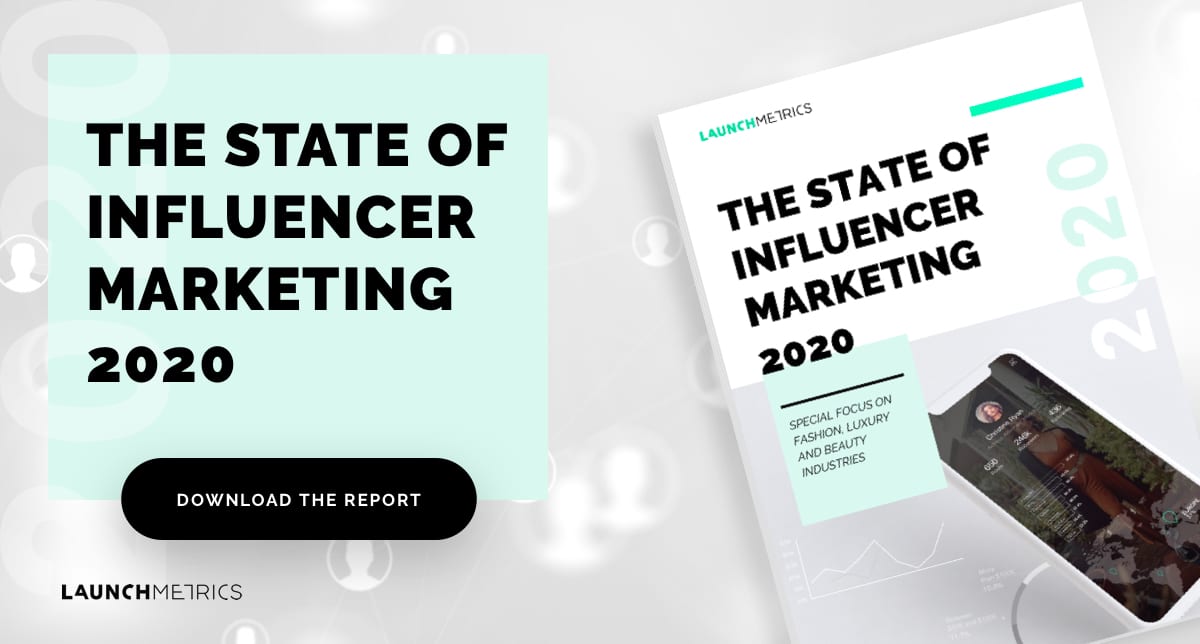Welcome back to our five-part blog series, where we look at the different Voices influencing customer journeys. For this installment, we wanted to focus on the Influencer Voice and how the concept of relatability that we spoke about in our recently launched annual State of Influencer Marketing 2020, is paving the way for successful influencer marketing campaigns. Through the examples of Sunday Riley and Marc Jacobs we will take a look at how brands are diversifying their influencer strategy by using an employee influencer program, as they adjust to the new industry climate.
In an oversaturated market of influencers, brands are finding it more and more challenging to identify which influencers resonate best with their brand. In this year's survey, we also found out that creating unique content was the fourth biggest challenge (16.6%) when it comes to brands working with influencers. With this in mind, brands are looking for new tactics that can put them at the forefront of consumers’ path to purchase, as well as creating content that is more personable and relatable.
The Voices Activating Customer Journeys: Leveraging Employee Influencer Programs
One of the biggest trends we saw increasing in popularity over the past year is that of brands leveraging customers as influencers - in fact, in our survey, 56.3% of brands said they were using this as part of their influencer marketing strategy. In the wake of Covid-19, this trend has become more solidified. But, as an extension to this, brands are beginning to understand the power of employee influencer programs. Therefore, this initiative is being leveraged as an opportunity to maintain a good balance of selling without being insensitive to the current situation to an audience who are more conscious than ever.
While the beauty industry is still at the top of the ranks when it comes to leveraging digital content creators as part of their marketing strategy, since there are a plethora of digitally-native brands, consumers are spoilt for choice. Therefore, beauty marketing strategies must evolve to engage tactics that will uniquely capture the spending power of their consumers. A strategy that brands have started utilizing as an extension to consumers as influencers is executing employee influencer programs over traditional influencer marketing programs. This places employees at the forefront of their social media, allowing beauty brands to share sincere testimonials and legitimize their voice through relatable content. Essentially, this bridges the gap between consumers and the brand.
#SundaySkin with Sunday Riley
One example of a cult beauty brand who is nailing this strategy is Sunday Riley, through their #SundaySkin series in which a member of their team provides their pro-tips on the products. This is a valuable tactic that can benefit the brand on various different levels such as allowing more efficiency with budgets, but more importantly, gaining trust from consumers such as Gen-Zers and Millenials that rely on relatable and authentic beauty content. What's more, the beauty brand regularly posts content from its CEO/Founder speaking of the product benefits, ingredients, and answering general consumer questions, which further amplifies their strategy of building a genuine relationship with their audience.
https://www.instagram.com/p/B8eXZzlA3u8/
Work from home with Marc Jacobs
In addition to this, employee influencer programs have been a successful tactic that not only beauty brands deploy, but increasingly, fashion brands are beginning to incorporate into their digital marketing strategies as a result of the lockdown period.
Marc Jacobs, amongst others, is one of the many brands within the fashion industry that have launched a “Work From Home” initiative. Members of the fashion house’s team share their ‘working from home outfit’ taken from the Marc Jacobs collection, alongside how they have been staying inspired through these unprecedented times. This method doubles up as employee branding as it allows the brand to celebrate the team that is really at the heart of the company, and highlights how much they love the company they are working for. Engaging with your audience through genuine content can ultimately inspire consumers on how to wear the collection, but as well, provide an authentic testimonial - as consumers today also buy into the intangible values of a brand and not just the product communication.
https://www.instagram.com/p/B-qXOypDm1E/
Although we have seen a shift in how brands are leveraging influencers, traditional influencers across all tiers still represent a large Share of Value for fashion, luxury, and, beauty brands. But, as the world faces uncertainty as to the direction the industry is heading, brands must now use this time to rethink how they can diversify their strategy in order to gain maximum ROI and still continue to execute successful campaigns with content creators that resonate with their brand.

